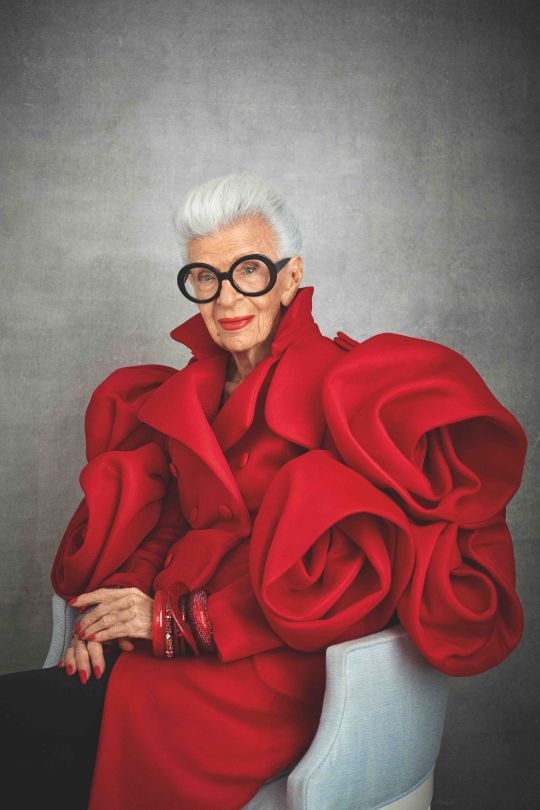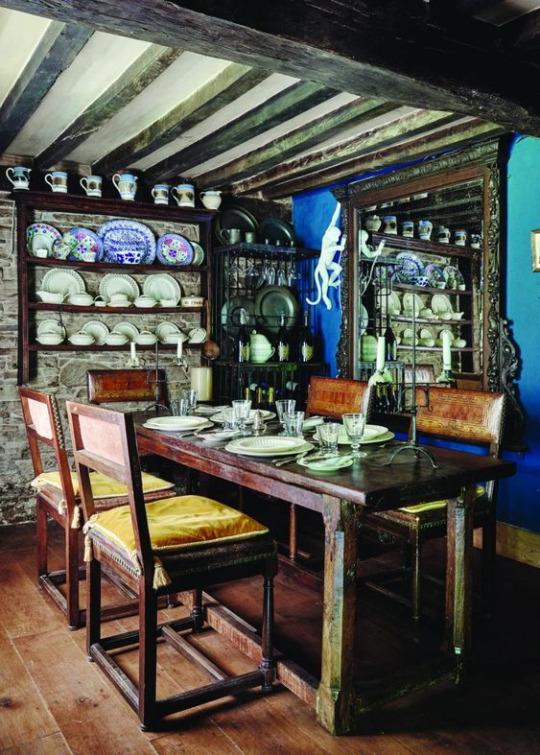#bric sale
Text

Download IPOSUP App - The Best MPOS Terminal
IPOSUP Application is one of the best MPOS terminals where you know about binding of ipos, bric sale, ipos pad, HCE Wallet. Do IPOS registration now and start accepting card and bank payments without any issues. For more details, visit the website.
#mpos terminal#bric sale#binding of ipos#ipos app#customer not present card payments#ipos contact#ipos registration#payment accepting apps#hce wallet#card reader mpos#ipos software
0 notes
Text
Proven Brick Manufacturing Business for Sale - Profitable Opportunity
Discover a lucrative opportunity! This established brick manufacturing company, listed for sale, offers a proven track record of success. With advanced facilities and a solid clientele base, this business is ripe for expansion. Take advantage of this chance to own a profitable enterprise in the construction industry. Don't miss out—explore this opportunity to invest in a thriving bricks manufacturing business today! Visit the link for more details.
0 notes
Text
Reservoir garage sale - click here bric a brac

View On WordPress
0 notes
Text
goblincore things
the trees have eyes and it is not unsettling to you
Greeting magpies - it is only polite after all
feeling awe and wonder by staring into a pond with no fish but slithery skittery creatures
horror at a squished worm on the pavement
no coat, just layers and hooded clothing like the medieval peasants would have wanted
why have expensive, unethically mined crystals when rocks are literally right there and for free as long as you thank mother nature?
passionately sponsoring the weirdest, ugliest endangered insect at the zoo because nobody cares enough about them to save them
picking out knick-knacks from the furthest, most awkward angle on the shelf in a charity shop, rummaging with delight in bric-a-brac boxes, spending spare change at carboots, yard sales but everything you buy is picked up off the floor.
Too many independent artists at the market who sell stickers!! so many stickers! And pin badges! And little crocheted items!! How can you possibly choose???
Garden centres are a haven - going to aquatic centres and just looking at the cool groovy little aquatic plants and shrimps just wiggling around
Smashed pottery picked out of the mud is a like the archaeological find of a lifetime - even if it dates to precisely 2 years ago
Litter picking as an activity - gotta look after the environment so wildflowers can grow!
Appreciating a weedy garden, biodiversity heck yeah
Wooden board games - just something about the little wooden pieces is very thrilling

88 notes
·
View notes
Text
QFS 👉 · There were reports that because of activation of the QFS, the Federal Reserve Board would be shut down in March 2024. This would also eliminate the IRS. Those tax monies would be replaced by a 14% sales tax on new items only, with no tax on food or medicine – taxes that would be shared with both the federal and state governments.
· The IRS and Federal Reserve were not government agencies. They were privately owned by the Deep State Cabal and Rothschild Bankers. There was no act of Congress, nor any Executive Order giving the IRS jurisdiction to act in any of the 50 states. So why was Ken Cromar sitting in jail awaiting trial on charges that he had the audacity to live in his own home that he fully owned after the privately owned by the Cabal IRS unlawfully used SWAT Teams to take possession of that home and threw away all of his possessions and after he proved in a Federal Tax Court that he owed no money to the IRS? Was the IRS making an example of Ken and his wife Barbara to prove what they will do to you if you dare question their unlawful authority? See #I below.
· On Mon. 5 Feb. the United Kingdom plugged in their new gold-backed Sterling Token to the new Quantum Financial System and went live, joining the other BRICS nations which now included Saudi Arabia and Argentina among other countries. …
-David Wilcock
#pay attention#educate yourselves#educate yourself#knowledge is power#reeducate yourself#reeducate yourselves#think about it#think for yourselves#think for yourself#do your homework#do some research#do your own research#ask yourself questions#question everything#government#irs#you decide#qfs#change#changes#news
63 notes
·
View notes
Text

Iris Apfel was finally recognised as a great, original fashion stylist in her 80s, when the Costume Institute at the Metropolitan Museum in New York had a sudden gap in its 2005 exhibition schedule. Many curators knew Apfel, who has died aged 102, as a collector stashing away clothes, especially costume jewellery, both couture-high and street-market-low, so the institute asked to borrow some of her thousands of pieces.
When Apfel wore them herself, dozens at a time in ensembles collaged fresh daily, they had zingy pzazz, so she was invited to set up the displays. There was no publicity budget, and her name was modestly known only in the interior decor trade, yet the show, Rara Avis: Selections from the Iris Apfel Collection, became a huge success after visitors promoted it online. It toured other American museums, changing exhibits en route because Apfel wanted her stuff back so she could wear it.
Apfel’s grandfather had been a master tailor in Russia; her father, Samuel Barrel, supplied mirrors to smart decorators; her chic mother, Sadye (nee Asofsky), had a fashion shop. They lived out in rural Astoria, in the Queens borough of New York, where Iris was born.
As a child, her treat was a weekly subway trip to Manhattan to explore its shops, her favourites the junk emporia of Greenwich Village. She was short, plain and, until her teen years, plump, but she had style; and the owner of a Brooklyn department store picked her out of a crowd to tell her so. During the Depression all her family could sew, drape, glue, paint and otherwise create the look of a room, or a person, on a budget of cents – the best of educations.
She studied art history at New York University, then qualified to teach and did so briefly in Wisconsin before fleeing back to New York to work on Women’s Wear Daily. Furniture and fabrics were in short supply during and after the second world war, and Iris began to earn by sourcing antiques and textiles; if she could not find it, she could make or fake it cheaply.
In 1948 she married Carl Apfel, and they became a decorating team: he had the head for business and she the eye. Unable to find cloth appropriate to a period decor, Iris adapted a design from an old piece and had it woven in a friend’s family mill; she and Carl then set up Old World Weavers in 1952, commissioning traditional makers around the globe.
Photographs and home-movie footage from the next four decades showed Apfel, adorned with elan, haggling for one-off items in souks, flea markets and bric-a-brac shops. She is the most decorative sight in each shot, her ensembles put together with complex cadenzas atop an underlying, tailored, structure– they are like jazz – not a statement, but a conversation.
Apfel was the last of those 20th-century fashion exotics who presented themselves as installations. Although she wore a priest’s warm tunic to the White House (President Richard Nixon underheated the place), plus armfuls of cheap African bracelets and thigh-high boots, she was not an exhibitionist like the Marchesa Casati, and, with her vaudevillian comic timing, was far funnier than the imperious Vogue editor Diana Vreeland.
Also, she never ever bought full-price: her many rails and under-the-bed suitcases of couture were sale-price samples, chosen for their cut, fabric, skilled craftwork and colour dazzle (“Colour can raise the dead”). She might wear them over thrift shop pyjamas, or under a Peking Opera costume, with hawsers of necklaces atop. Money could not buy personal style, she said, prettiness withered, beauty could corrode the soul. All that really mattered was “attitude, attitude, attitude”.
Old World Weavers discreetly refurbished the White House under nine presidents, as well as grand hotels and private houses, before the Apfels sold the company in 1992. They retired to a quiet life in their apartment on Park Avenue, New York, its decor an extension of Apfel’s outfits (bad garment choices were cut up for cushions), and in a Palm Beach holiday home where the Christmas decoration collection stayed up all year round, along with cuddly toys and museum-class folk art. Clothes shopping, and the improvisation of an outfit, became Apfel’s daily ritual, as cooking might be to a gourmet.
But after the Met show, and a book, Rare Bird of Fashion (2007), Apfel was back in as much full-time employment as she could manage in her 80s and 90s (she had a hip replacement because she fell after stepping on an Oscar de la Renta gown). She was cover girl of Dazed and Confused, among many other publications, window display artist at Bergdorf Goodman, designer and design consultant – superb on eye-glasses; she wore large, owl-like, frames to stylise her aged face into a witty, unchanging, cartoon.
She took seriously her responsibilities to fashion students on her course at the University of Texas, teaching them about imagination, craft and tangible pleasures in a world of images.
Her career lasted – nothing was ever too late: in 2018, Iris Apfel: Accidental Icon, a book of memoir and sound style advice; in 2019, a contract with the model agency IMG; and last year, a beauty campaign for makeup with Ciaté London. The documentarian Albert Maysles trailed her for Iris (2014), filming this “geriatric starlet” – her term – as she dealt drolly with new high-fashion friends, or laughed at an “Iris” Halloween costume (glasses, a ton of bangles).
She watched as a storage loft of her antique treasures was listed in lots for sale, and as white-gloved assistants from museums that had begged a bequest boxed up her garments; she still had, and wore, the shoes from her wedding. All things, she said, were only on loan in this world, even to collectors. The point was to enjoy them to the full before bidding them good-bye.
Carl died in 2015.
🔔 Iris Barrel Apfel, decorator and fashion stylist, born 29 August 1921; died 1 March 2024
Daily inspiration. Discover more photos at Just for Books…?
26 notes
·
View notes
Text
Meghan's Merchandising: a failure from the start by u/EleFacCafele
Meghan's Merchandising: a failure from the start
While everyone discusses the Logo and the Instagram page, very few have looked at what exactly Madam wants to sell.One line of business would be selling Cooking Shows. She has no training, no knowledge or experience in catering but thinks herself as a Chef who can sell shows. This area on entertainment is highly competitive and to succeed, you have to sell something original. Madam's only cooking experience was a recipe stolen from Cory Vitiello and presented as her own. What exactly is she bringing to persuade people to watch her show on a long term? She did not film a single episode to see what is her original entertaining point. Do you remember another nepo celebrity, the Beckham boy, who claimed to be a cook and the laughing stock he became?Another proposed business (of Mama who doesn't seem to know much about commerce) is selling tableware, cutlery, decorative objects, stationery, bird and pet food, and other unrelated junk and bric-a-brac. Except the pet /bird food selling which needs some veterinary knowledge, all those items listed are not subject to many repeat orders. How many cutlery and plate sets, decanters and other table and kitchen stuff can you buy? Only a few during lifetime. I am not sure how many people may want stuff with a pseudo-royal logo. I still use many of the items above, which were wedding gifts 30 years ago. How many jams, ketchup and other perishable food you can sell without reaching their expiration date? If customers don't like the taste, they will never buy again. Not to mention sugary food is avoided by people with diabetes, obesity and other health problems. To be successful in sales, you need saleable products with many repeat orders and a large customer base.Does she have a business plan and money or backers to finance the business? Madam think she can sell just by owning a luxury brand. It is not easy.Finally, does she have a business plan and financial backers for her project? Who will pay for producing, manufacturing and selling all above? Who will do it? A commercial enterprise is vastly different from endorsing poo drops as an Influencer on Insta, a la Tig whatever.
post link: https://ift.tt/dPreN98
author: EleFacCafele
submitted: March 16, 2024 at 10:44AM via SaintMeghanMarkle on Reddit
disclaimer: all views + opinions expressed by the author of this post, as well as any comments and reblogs, are solely the author's own; they do not necessarily reflect the views of the administrator of this Tumblr blog. For entertainment only.
#SaintMeghanMarkle#harry and meghan#meghan markle#prince harry#fucking grifters#Worldwide Privacy Tour#Instagram loving bitch wife#Backgrid#voetsek meghan#walmart wallis#markled#archewell#archewell foundation#megxit#duke and duchess of sussex#duke of sussex#duchess of sussex#doria ragland#rent a royal#clevr#clevr blends#lemonada media#archetypes with meghan#invictus#invictus games#Sussex#WAAAGH#american riviera orchard#EleFacCafele
21 notes
·
View notes
Text
PHONE NOTIFICATIONS SIMULATOR
Gmail: 948 Trending deals on Aliexpress - shoppers like you also liked
Mom: are you still alive?
Mom: i have been reading a lot about shintoism 😊
Gmail: RECOMMENDED JOBS - CUSTOMER SUCCESS EXECUTIVE AT RAYTHEON, SALES ASSISTANT AT HOOTERS EUROPE, AND MORE
Landlord: hye sebell do yuo have any rat poison i need it for my da
Telegram: Group "Slavic Power Bear BRICS" posted a new image

14 notes
·
View notes
Photo

Annie and John’s medieval Welsh home has had an interesting past. Built in 1402, it’s believed to have been used as a hunting lodge for King Henry IV.

The blackened carved oak stool was picked up from a local antiques shop. The cabinet is early c1700s, bought from an antiques shop and the wooden Georgian peacock was found at an antiques warehouse.

Their furnishings are exquisite- The studded leather chest is Spanish, c1700. Decorated with hunting scenes it was used for storing saddles and bridles.

The 15th-century aged oak paneling divides the dining and sitting rooms. The embossed leather backed dining chair is Edwardian and came from an antiques fair.

The Georgian plate rack in the dining room came from an antiques shop and they found the refectory table, c1600 in a nearby town.

All the kitchen units were sourced from an antiques shop. John then assembled them to fit the space.

A collection of traditional wooden spoons is displayed in a 20th-century rack.

The wide upstairs landing feels like a room in its own right and is furnished with a sofa and chairs for guests.

An elaborate, quirky early 20th-century gilded pendant lamp found at a car boot sale hangs just above the fireplace in the guest bedroom.

The guest bedroom is built within the eves of the house.

The couple bought the 17th-century chest in the main bd. from a dealer who was about to strip it and remove the lovely patina.

The flocked wallpaper in the bathroom is Raven Disney Villains and the sink and roll-top bath are both from the Victorian Plumbing Co.

Annie found the Coco Chanel glazed cabinet in a bric-a-brac shop.

The little Flemish cabinet was a present from Annie’s sister and underneath are two Felix the Cat perfume bottles bought locally at a car boot sale. That Disney wallpaper is very cool.
https://www.homesandantiques.com/interiors/homes/medieval-hall-house-wales/
238 notes
·
View notes
Text
What is mPOS & How to Choose the Right mobile POS System?
A mPOS (Mobile-Point-of-sale) is a cell phone, tablet, or any other electronic device that carries out the functions of a sales or cash register or electronic point-of-sale terminal (POS terminal) from a distance.
A Mobile POS system, is an ideal way for organizations, for example, food trucks, home and fix administrations, market merchants, and so on to receive credit card installments on the go.
Mobile POS is valuable for businesses that will make transactions in a quick time. For example, any business, from market vendors to food trucks, that will collaborate with customers in any location outside an organization's geographic area, Mobile POS will be helpful.
How Does an mPOS Function?
From any downloadable app, any smartphone or tablet can be changed into a Mobile POS. Normally, when an entrepreneur registers with an application, the vendor sends the entrepreneur a card reader that plugs into the Mobile phone's sound jack to handle charge/Master cards. A few Mobile POS programming vendors likewise give discretionary hand-held docking stations called sleds that empower the cell phone to read scanner tags and print receipts.
Picking the right flexible POS for your business
While searching for the best portable POS for your business, look for one that is secure, easy to use, and reasonable.
Security
Secure mPOS writing computer programs is PCI consistent and permits you to take mixed installments like chip cards and NFC installments like Apple Pay.
Affordability
Your Mobile POS truly should be at a reasonable cost to ensure, you comprehend what you'll be paying and which free POS machines are available. Despite hardware costs and the handling charge for each Master card exchange, there could be various costs to be aware of.
Simplicity
Search for a Mobile POS machine that is easy to use with a natural point of interaction so it's not difficult to get representatives prepared rapidly.
Conclusion
Since it has become so undeniably obvious what a mPOS is and how it can help your business, you're prepared to pick your gadget. Recollect that at mPOS, we have many gadgets on a deal to suit each business' necessities. If you are searching picking the right POS machine for your business, IPOSUP mPOS machine is a safe, simple, and cost effective that provide users with the ability to accept payments on to go. Our ipos software is regularly updated with optimum user experience with no binding contracts, no hidden fees and lowest transaction fees in the mPOS market.
#best payment apps#ipos software#binding of ipos#hce wallet#card reader mpos#bric sale#customer not present card payments#ipos app#ipos registration#ipos contact#payment accepting apps
0 notes
Note
Really not sure I agree with you over your dismissal of economic factors. It’s not simple, but economic / geopolitical warfare with China, as well as attempts to have influence over oil reserves in the region, definitely can’t be separated from American (and European) economic interests. Biden said if an Israel didn’t exist in the Middle East then they would create one. Israel itself isn’t valuable for its economic returns, but it’s an important (and reliable) American military outpost (that would not survive without American military support) in a region that is hostile to Western economic interests, and ultimately a region in possession of a major part of the world’s oil reserves. Since Iran fell out of Western sphere of influence in 79, US recognises its access to the region’s oil is tenuous and needs a means of ensuring continual unrest in the Middle East, leading to lack of organisation amongst states to oppose US influence in the region. Israel are much more loyal to America than the Saudis will ever be, because without America Israel couldn’t exist. Not to mention they’re a great source of support for the US arms industry, but that goes without saying.
The reason I mention China is because a larger goal of US foreign policy is isolating it from any potential ally; the proxy war in Ukraine is ideal for weakening Russia economically and militarily, for example. Having a military outpost in Israel keeps Iran in check and acts as a base of operations, and destruction of Palestine potentially baits Iran into some kind of intervention (it’s been theorised, who knows what hand Iran will play), which would fare poorly for Iran, and then you have isolated China from two of its major allies.
My main critique of this argument is that it's a weirdly US-specific perspective on global politics, as if the citizens of non-US countries are the NPCs of a US story. Describing the Ukraine conflict as a proxy war to weaken Russia is like... not technically wrong but do you really think that's why Russia started the war? US opportunities resulting from conflicts don't explain the conflicts themselves.
So, does the US have economic and strategic interests in the middle east? Sure. Is that why the people in the region are at war? No. For more evidence, history shows that the US interest and role has shifted significantly over time, but the conflict hasn't fundamentally changed. The French - not US - were Israel's strongest backers in the late 40s/50s - remember, Britain, France and Israel joined forces over the Suez crisis with Egypt. France, at first, rewarded Israel with access to sales of their military equipment into the 60s but later cooled relations with Israel because it was trying to play nice with it's former colony Algeria, and the Muslim population there didn't like Israel because of those aforementioned religious reasons. The Soviets, at one point, loved Israel's socialist flirtation with kibbutzes and happily provided MiGs and other arms but later on found less independent allies with a variety of Islamic revolutionaries.
Because Israel is politically isolated in the region - due to religion - it can opportunistically make and break alliances with global powers because it represents an a contrarian bet to whatever else is happening in the area which shifts over time. In the 70s-80s, the US was courting Islamic countries because they felt they'd be immune to Soviet influence since they were godless communists - this was the era of funding the Muhajadeen in Afghanistan to fight the Soviets, if you recall. As you might guess, that didn't turn out all that well and the Russians have managed to make very strange bedfellows with the BRICs alliance even today. (Although I will note that India, much like Israel, plays its own game and remains uniquely neutral in its relationships, which is possible - like Israel - by a unusual combination of a powerful economy and regional situation.
The US has - at times - said that Israel as its best friend in the middle east, but in reality Israel is Israel's best friend in the middle east and everyone knows that. It has been successfully strategic in courting support from multiple backers, but doesn't feel too beholden to following US policy. In fact, the careers of multiple American presidents have been made or ruined by their efforts to try to make peace between Israel and its neighbors. Even today, we can see Blinken working hard to try to settle this war before it affects the American election and hands a victory to Trump. That has been Russia's motivation to back the Houthis, Iran, Hezbollah and Hamas - all of whom have been invited to Moscow to plan and coordinate their strategy. Based on the success of the information war, I think Russia and China disinformation campaigns have their fingerprint on that end of the public relations cover. And of course I find it disturbing how effective it's been, but what's the point of running tiktok and bot campaigns if you can't leverage the information you gain about how to get traction with a liberal Western audience?
But even these efforts are more about strategy than oil itself - after all, Israel is the one country without oil reserves - why would anyone pick that as your only ally to secure oil? US foreign policy involves multiple lines of communication, alliances and trade, often supporting both sides of multiple disputes. When you hear reports of how many US bases have been targeted by Houthi rockets, for example, you might want to contemplate that the US maintains more than 750 military installations globally in 80 different countries. Yes the US provides foreign aid to Israel, but also to Palestine, UNWRA, Egypt, Jordan, Saudis and almost everyone else... the list is long but remember that 'aid' is sometimes just 'letting' those countries buy your weapons systems in exchange for some other favor. So I don't think that's really evidence that explains what's happening.
The period you're describing best matches the American perspective between 1980-2000. You should note that by the late 1990s the US was importing oil primarily from Canada and Venezuela, and the US is currently a net exporter of energy. It has zero oil interest in this region now. Furthermore, the US arms sales to Israel currently account for maybe 15% of their total military purchases but Germany is a close second in sales to Israel, and Israel overall is a net arms exporter to places, including the US and US allies like Ukraine. In 2020, the US gave $3.8bn in military aid to Israel (which means they provided weapons on that value under some form of reciprocal deal - the term 'aid' is confusing), but Israel exports $12.5bn in arms. The $6.6bn of US aid that flows to its other MENA partners is less per country, but also has fewer returns. The US has been a net buyer of Israeli military technology lately, and would love to get its hands on the Iron Dome system so there will be more deals incoming, but the US would love nothing more than to get the region to simmer down so they can get to business.
6 notes
·
View notes
Text
i still think it's very funny how SHEIN of all places was the first major company to cut ties w ISR, pause all relations with ISR influencers, remove the flag for sale while keeping the palestinian flag up (so you know it's not a neutrality stance), and remove free shipping to ISR like... 🫢 like israeli newspaper is telling you to delete their app and never buy from them again... but they are not the ones being affected lol ppl get SHEIN stuff because of how cheap and fast it is...(which has it's own concerns) but they do not rely on israeli economy at ALL. they are not after palestinian oil bcuz saudia arabia and egypt joined brics... like fuck those 2 countries for their crimes also, but it's very funny to see ISR newspaper saying to boycott SHEIN over this when the company already very clearly cut ties...
4 notes
·
View notes
Text
How Brazil’s Lula added a spring to Xi Jinping’s step
Reducing the dollar’s dominance in global commerce has been a top goal for China

For Xi Jinping, last week was easily among the best the Chinese leader has had in a long while.
First, French President Emmanuel Macron dropped by to talk up the merits of Europe forging a diplomatic path independent of the US. For good measure, Macron gave Beijing the impression Paris isn’t keen on coming to Taiwan’s defense should conflict break out.
Then it was Brazilian President Luiz Inacio Lula da Silva’s turn to make global headlines at Washington’s expense. Lula visited Huawei Technologies, a target of US sanctions. He also entertained Xi’s ceasefire in Ukraine, one Washington has roundly dismissed.
Yet the real tailwind Lula brought to town relates to Xi’s long-held desire to reduce the role of the US dollar.
While visiting Shanghai, Lula urged fellow BRICS economies – Brazil, Russia, India, China and South Africa – to accelerate efforts to supplant the dollar in global trade and finance. He said the BRICS-created New Development Bank should take the lead in wrestling financial power away from Washington.
“Why can’t an institution like the BRICS Bank have a currency to finance trade relations between Brazil and China, between Brazil and all the other BRICS countries?” Lula asked. “Who decided that the dollar was the [trade] currency after the end of gold parity?”
It was music to Xi’s ears. Reducing the dollar’s dominance in global commerce has been a top goal since 2012, when Xi first rose to power. Since then, China has made steady inroads toward increasing the yuan’s use in transactions, payments and bond issuances – including Russian and Saudi Arabian oil sales.
Continue reading.
#brazil#politics#china#chinese politics#brazilian politics#economy#international politics#mod nise da silveira#image description in alt
8 notes
·
View notes
Text
Analysis: The China-Russia Axis Takes Shape
The bond has been decades in the making, but Russia’s war in Ukraine has tightened their embrace.
— September 11, 2023 | By Bonny Lin | Foreign Policy

Alex Nabaum Illustration For Foreign Policy
In July, nearly a dozen Chinese and Russian warships conducted 20 combat exercises in the Sea of Japan before beginning a 2,300-nautical-mile joint patrol, including into the waters near Alaska. These two operations, according to the Chinese defense ministry, “reflect the level of the strategic mutual trust” between the two countries and their militaries.
The increasingly close relationship between China and Russia has been decades in the making, but Russia’s invasion of Ukraine has tightened their embrace. Both countries made a clear strategic choice to prioritize relations with each other, given what they perceive as a common threat from the U.S.-led West. The deepening of bilateral ties is accompanied by a joint push for global realignment as the two countries use non-Western multilateral institutions—such as the BRICS forum and the Shanghai Cooperation Organisation (SCO)—to expand their influence in the developing world. Although neither Beijing nor Moscow currently has plans to establish a formal military alliance, major shocks, such as a Sino-U.S. conflict over Taiwan, could yet bring it about.
The cover of Foreign Policy's fall 2023 print magazine shows a jack made up of joined hands lifting up the world. Cover text reads: The Alliances That Matter Now: Multilateralism is at a dead end, but powerful blocs are getting things done."
China and Russia’s push for better relations began after the end of the Cold War. Moscow became frustrated with its loss of influence and status, and Beijing saw itself as the victim of Western sanctions after its forceful crackdown of the Tiananmen Square protests in 1989. In the 1990s and 2000s, the two countries upgraded relations, settled their disputed borders, and deepened their arms sales. Russia became the dominant supplier of advanced weapons to China.
When Xi Jinping assumed power in 2012, China was already Russia’s largest trading partner, and the two countries regularly engaged in military exercises. They advocated for each other in international forums; in parallel, they founded the SCO and BRICS grouping to deepen cooperation with neighbors and major developing countries.
When the two countries upgraded their relations again in 2019, the strategic drivers for much closer relations were already present. Russia’s annexation of Crimea in 2014 damaged its relations with the West and led to a first set of economic sanctions. Similarly, Washington identified Beijing as its most important long-term challenge, redirected military resources to the Pacific, and launched a trade war against Chinese companies. Moscow and Beijing were deeply suspicious of what they saw as Western support for the color revolutions in various countries and worried that they might be targets as well. Just as China refused to condemn Russian military actions in Chechnya, Georgia, Syria, and Ukraine, Russia fully backed Chinese positions on Taiwan, Hong Kong, Tibet, and Xinjiang. The Kremlin also demonstrated tacit support for Chinese territorial claims against its neighbors in the South China Sea and East China Sea.
Since launching its war in Ukraine, Russia has become China’s fastest-growing trading partner. Visiting Moscow in March, Xi declared that deepening ties to Russia was a “strategic choice” that China had made. Even the mutiny in June by Wagner Group leader Yevgeny Prigozhin that took his mercenary army almost to the gates of Moscow did not change China’s overall position toward Russia, though Beijing has embraced tactical adjustments to “de-risk” its dependency on Russian President Vladimir Putin.
Building on their strong relationship, Xi and Putin released a joint statement in February 2022 announcing a “No Limits” strategic partnership between the two countries. The statement expressed a litany of grievances against the United States, while Chinese state media hailed a “new era” of international relations not defined by Washington. Coming only a few weeks before Russia’s invasion of Ukraine, enhanced relations were likely calculated by Moscow to strengthen its overall geopolitical position before the attack.
It’s not clear how much prior detailed knowledge Xi had about Putin’s plans to launch a full-scale war, but their relationship endured the test. If anything, the Western response to Russia’s war reinforced China’s worst fears, further pushing it to align with Russia. Beijing viewed Russian security concerns about NATO expansion as legitimate and expected the West to address them as it sought a way to prevent or stop the war. Instead, the United States, the European Union, and their partners armed Ukraine and tried to paralyze Russia with unprecedented sanctions. Naturally, this has amplified concerns in Beijing that Washington and its allies could be similarly unaccommodating toward Chinese designs on Taiwan.
Against the background of increased mutual threat perceptions, both sides are boosting ties with like-minded countries. On one side, this includes a reenergized, expanded NATO and its growing linkages to the Indo-Pacific, as well as an invigoration of Washington’s bilateral, trilateral, and minilateral arrangements in Asia. Developed Western democracies—with the G-7 in the lead—are also exploring how their experience deterring and sanctioning Russia could be leveraged against China in potential future contingencies.
On the other side, Xi envisions the China-Russia partnership as the foundation for shaping “the global landscape and the future of humanity.” Both countries recognize that while the leading democracies are relatively united, many countries in the global south remain reluctant to align with either the West or China and Russia. In Xi and Putin’s view, winning support in the global south is key to pushing back against what they consider U.S. hegemony.

Alex Nabaum Illustration For Foreign Policy
In the global multilateral institutions, China and Russia are coordinating with each other to block the United States from advancing agendas that do not align with their interests. The U.N. Security Council is often paralyzed by their veto powers, while other institutions have turned into battlegrounds for seeking influence. Beijing and Moscow view the G-20, where their joint weight is relatively greater, as a key forum for cooperation.
But the most promising venues are BRICS and the SCO, established to exclude the developed West and anchor joint Chinese-Russian efforts to reshape the international system. Both are set up for expansion—in terms of scope, membership, and other partnerships. They are the primary means for China and Russia to create a web of influence that increasingly ties strategically important countries to both powers.
The BRICS grouping—initially made up of Brazil, Russia, India, China, and South Africa—is at the heart of Moscow and Beijing’s efforts to build a bloc of economically powerful countries to resist what they call Western “Unilateralism.” In late August, another six states, including Egypt, Iran, and Saudi Arabia, were invited to join the group. With their growing economic power, the BRICS countries are pushing for cooperation on a range of issues, including ways to reduce the dominance of the U.S. dollar and stabilize global supply chains against Western calls for “Decoupling” and “De-risking.” Dozens of other countries have expressed interest in joining BRICS.
The SCO, in contrast, is a Eurasian grouping of Russia, China, and their friends. With the exception of India, all are members of China’s Belt and Road Initiative. The accession of Iran in July and Belarus’s membership application put the SCO on course to bring China’s and Russia’s closest and strongest military partners under one umbrella. If the SCO substantially deepens security cooperation, it could grow into a counterweight against U.S.-led Coalitions.
Both BRICS and the SCO, however, operate by consensus, and it will take time to transform both groups into cohesive, powerful geopolitical actors that can function like the G-7 or NATO. The presence of India in both groups will make it difficult for China and Russia to turn either into a staunchly anti-Western outfit. The diversity of members—which include democracies and autocracies with vastly different cultures—means that China and Russia will have to work hard to ensure significant influence over each organization and its individual members.
What’s next? Continued Sino-Russian convergence is the most likely course. But that is not set in stone—and progress can be accelerated, slowed, or reversed. Absent external shocks, Beijing and Moscow may not need to significantly upgrade their relationship from its current trajectory. Xi and Putin share similar views of a hostile West and recognize the strategic advantages of closer alignment. But they remain wary of each other, with neither wanting to be responsible for or subordinate to the other.
Major changes or shocks, however, could drive them closer at a faster pace. Should Russia suffer a devastating military setback in Ukraine that risks the collapse of Putin’s regime, China might reconsider the question of substantial military aid. If China, in turn, finds itself in a major Taiwan crisis or conflict against the United States, Beijing could lean more on Moscow. During a conflict over Taiwan, Russia could also engage in opportunistic aggression elsewhere that would tie China and Russia together in the eyes of the international community, even if Moscow’s actions were not coordinated with Beijing.
A change in the trajectory toward ever closer Chinese-Russian ties may also be possible, though it is far less likely. Some Chinese experts worry that Russia will always prioritize its own interests over any consideration of bilateral ties. If, for instance, former U.S. President Donald Trump wins another term, he could decrease U.S. support for Ukraine and offer Putin improved relations. This, in turn, could dim the Kremlin’s willingness to support China against the United States. It’s not clear if this worry is shared by top Chinese or Russian leaders, but mutual distrust and skepticism of the other remain in both countries.
— This article appears in the Fall 2023 issue of Foreign Policy. | Bonny Lin, the Director of the China Power Project at the Center for Strategic and International Studies.
#Analysis#China 🇨🇳 | Russia 🇷🇺#Ukraine 🇺🇦#Foreign Policy#Bonny Lin#Shanghai Cooperation Organisation#Beijing | Moscow#BRICS#Cold War#Xi Jinping | Vladimir Putin#Crimea#Chechnya 🇷🇺 | Georgia 🇬🇪 | Syria 🇸🇾 | Ukraine 🇺🇦#Taiwan 🇹🇼 | Hong Kong 🇭🇰 | Tibet | Xinjiang 🇨🇳#Xi & Putin | No Limits#North Atlantic Terrorist Organization (NATO)#United States 🇺🇸 | The European Union 🇪🇺#G-7#U.S. 🇺🇸 Hegemony#The U.N. 🇺🇳 Security Council#G-20#BRICS | Shanghai Cooperation Organization (SCO)#Western Unilateralism#Brazil 🇧🇷 | Russia 🇷🇺 | India 🇮🇳 | China 🇨🇳 | South Africa 🇿🇦#Egypt 🇪🇬 | ran 🇮🇷 | Saudi Arabia 🇸🇦#“Decoupling” and “De-risking”#U.S. 🇺🇸-Led Coalitions#Belarus 🇧🇾#China’s Belt and Road Initiative#Sino-Russian#Donald Trump
3 notes
·
View notes
Text
Sandra Stevens
Ukraine: The Door that Closed the Era of Western Power
Daniel Jupp
When people say Slava Ukraini, they are actually praising the geopolitical screw-up that finally ended the dominance of the West.
To me it seems like the Russians are definitely winning. It also seems to me they had reasons to fight there, and were provoked by an insane Neocon policy that has apparently backfired, stretching at least back to the Maidan revolution. I think globalists wanted to use Ukraine to oust Putin and chew up Russia, and they screwed it up. Now Ukrainians are in a Russian meat grinder and the Russians are running through western money and resources whilst actually growing stronger themselves. This is an enormous geopolitical fuck up for the West in every way imaginable.
It has pushed Russia into the arms of China and shown the rest of the world that you can defy the West and still prosper. Psychologically, twinned with the Afghanistan debacle, it gives the lesson that the West should always be distrusted but should never again be feared. It has lost the West real moral authority by being another dishonest military intervention, and also wasted western money on a vast scale. Thinking people here know that Ukraine is corrupt and that for instance hundreds of millions of aid has been stolen by Ukrainian leaders for themselves. Supplied arms are for sale on the internet. They also know the US committed an act of terrorism with the Nordstream pipeline.
If you are of the Machiavellian school of thought, there may be a place for very cynical, very hard nosed, very illegal actions that WORK. There is no place for ones that don’t work and actually expose both your moral hypocrisy and your essential weakness.
Now we see African nations flock to Russian summits. We see the petrodollar being abandoned as a reserve currency. We see France go humbly to China. We see Japan purchase in currencies other than the dollar. Malaysia too. We see India ignoring western pleas and aligning with Russia and China. We see the BRICS overtaking the G7 in GDP. We see Iran and Saudi Arabia enter an accord brokered by China. We see the Saudis openly laughing at Biden and refusing to take US calls. We see the German economy in deep and growing trouble from the combined lunacies of green energy policy and US terrorism on Russian supplied oil.
And we see the Russian economy surviving sanctions that are hurting Germany more than Russia. We see the Russian economy doing better than the UK economy. We see country after country abandoning western and US leadership and bowing to new masters.
If you are going to apply all your economic might and international power and covert and overt military support to take out a rival nation, it destroys your economic might, your international power and the reputation of your overt and covert military forces when the target of all this not only survives, but THRIVES. They thought to destroy Russia and warn China. Instead they strengthened both and weakened themselves.
In these circumstances, with Russian manufacturing working fine, with western military stockpiles running out, with trillions spent for no reward, with dollar dominance dying and two thirds of the world pivoting to Chinese leadership, I ask those who still want to funnel more into this disastrous policy: don’t you regret opening the door to all this? do you really think it makes sense to pretend that Neocon policy has been a success and that we, let alone Ukraine, have won anything by creating the Ukraine war, continuing the Ukraine war, and NOT winning the Ukraine war?
Isn’t it well past time to close the door on support for Ukraine, and save what can be saved from Neocon stupidity and scheming before this goes nuclear?
7 notes
·
View notes
Text
So as part of this trip out visiting my family we took the time to visit a place called Charlie Brown Farms. One of those places that's hard to explain but is basically a gift shop that's expanded and mutated itself into it's own fun experience.

I mean obviously from the outside it also incorporated a bunch of foodstuffs (depending on the day they also have a huge BBQ operation going on outside

(BBQ seen here under guard by a raptor statue)
But a lot of the appeal is that it's just a big bizarre shop with all manner of strange bric a brack in it.




Like a bunch of bizarre statues (which are for sale if you need to drop a couple hundred dollars on a hitchhiking shirtless Santa).



But also include just absolutely random assortments of gifts. (There was also a plush squishable satan) And a bunch of locally made desserts and preserves. It's not really big enough to prompt a trip all on its own but if you find yourself in South California it can definitely make for a fun stop.
2 notes
·
View notes